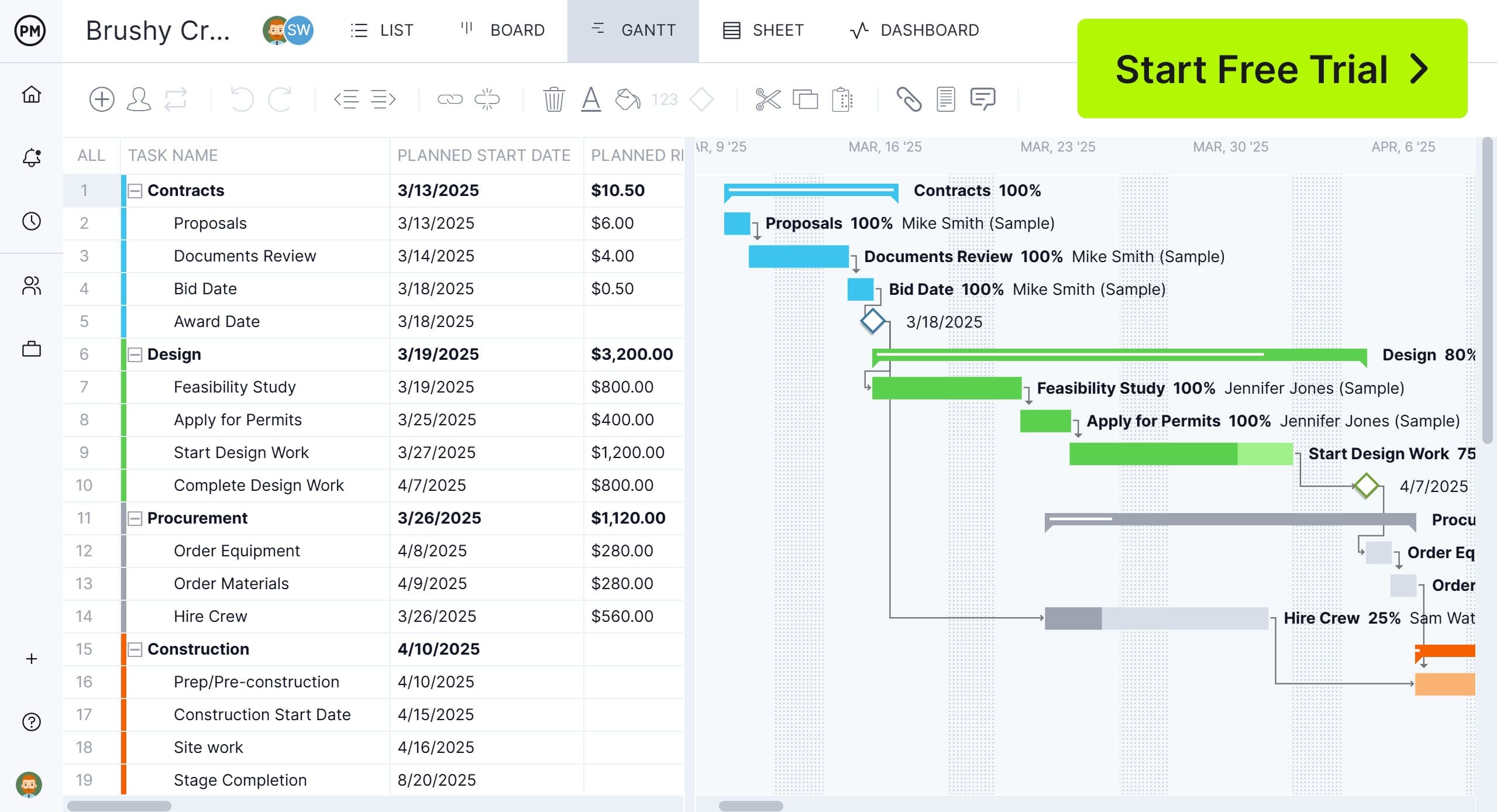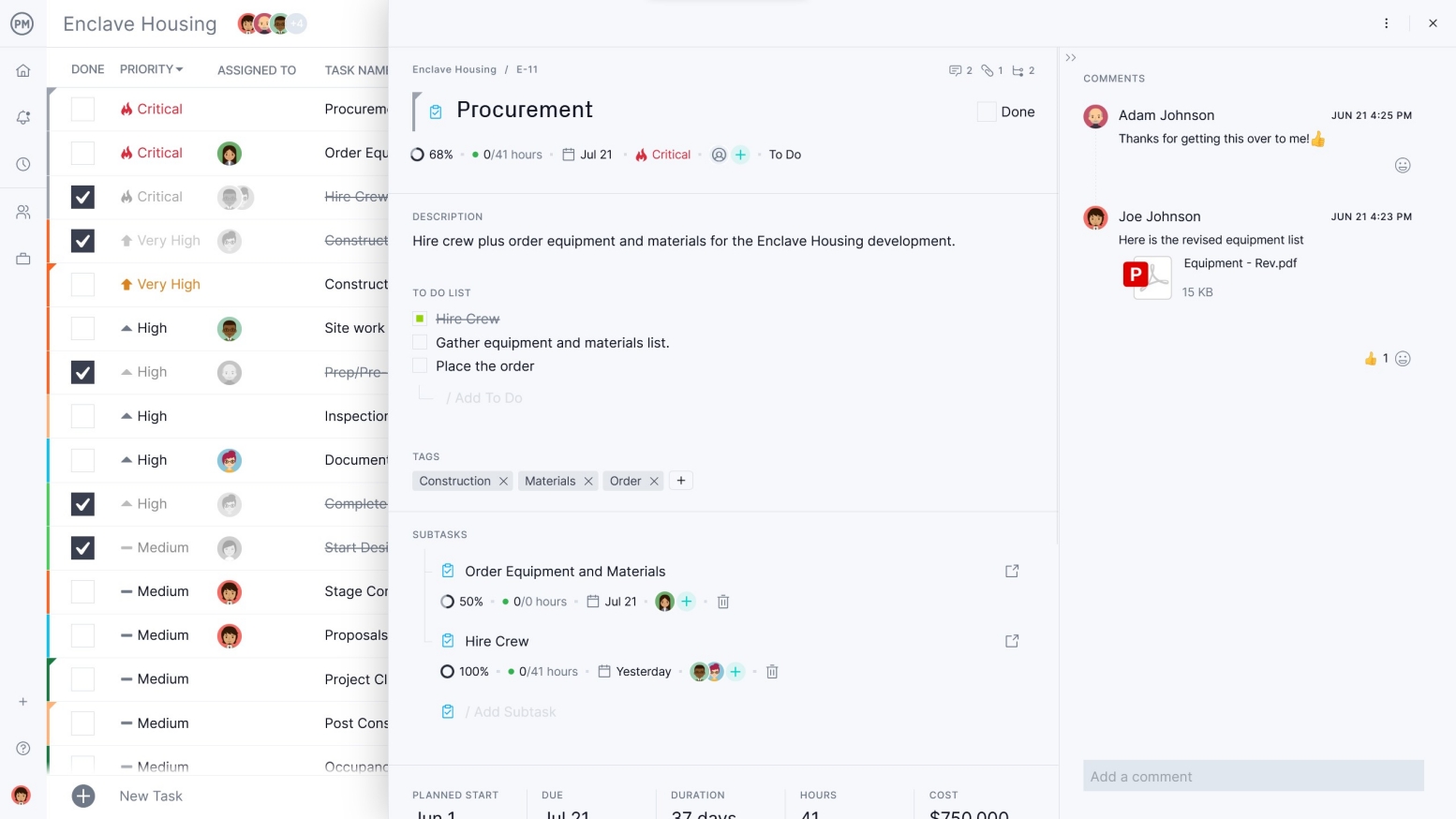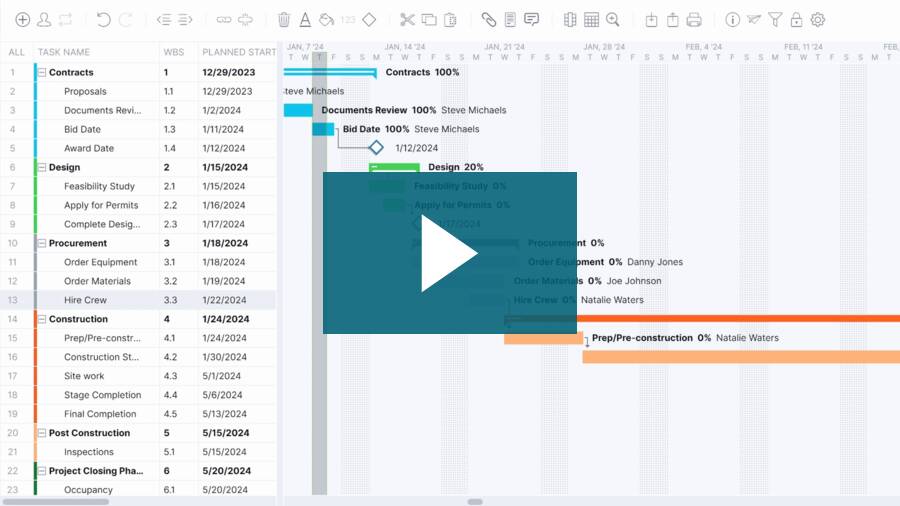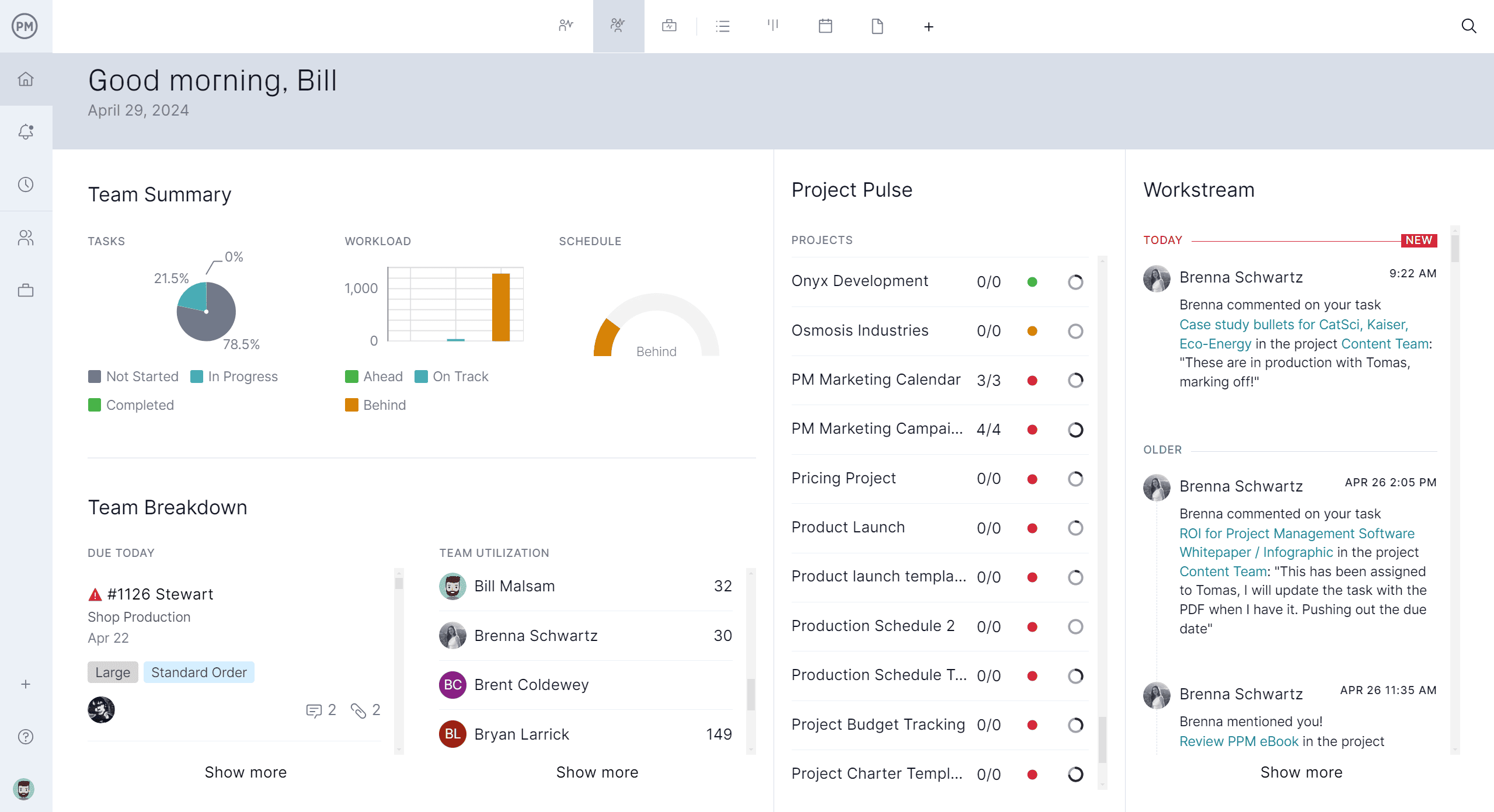Project management is essential to delivering successful outcomes across industries, whether you’re launching a new product, constructing a building or implementing company-wide change. An introduction to project management will help from setting clear goals to coordinating people, timelines and resources, project management helps teams stay organized and focused as they move from planning to completion.
Whether you’re just starting or looking to sharpen your skills, understanding the core principles of project management is a valuable step. In this guide, we’ll explore key concepts that shape effective project leadership and highlight some top courses to help you grow your expertise and confidence in managing projects of any size.
Introduction to Project Management: Key Concepts
An introduction to project management helps to understand the critical role in turning ideas into results by providing a structured approach to organizing and delivering work. It helps teams coordinate efforts, meet deadlines, and stay aligned with overall goals, no matter the size or scope of the initiative. From launching new services to managing construction builds, effective project management supports clarity, accountability and forward momentum.
Understanding key project management concepts is valuable whether you’re leading a team, supporting a project or looking to improve how work gets done. These concepts apply across industries and help ensure that projects not only reach completion but do so with efficiency and purpose.
But before getting into that, no introduction to project management is complete without stressing the importance of project management software. It brings structure, visibility and efficiency to complex work that’s difficult to manage manually. One of the most critical features in project management software is the Gantt chart, which visually maps out tasks along a timeline, showing start and end dates, dependencies and key milestones.
ProjectManager is award-winning project and portfolio management software with Gantt charts that allow project managers and their teams to see the sequence of work, identify potential delays and coordinate responsibilities across teams and timelines.
Users can set all four types of task dependencies, filter for the critical path to pinpoint tasks with zero slack and set a baseline to compare planned progress against actual performance. Our software transforms planning from a static list into a dynamic, visual workflow that keeps everyone aligned and accountable from start to finish. Get started with ProjectManager today for free.


1. Project Life Cycle
The project life cycle outlines the stages a project goes through from beginning to end.
2. Project Management Knowledge Areas
These are key categories of expertise essential for effective project management.
- Integration Management: Ensures all aspects of the project work together.
- Scope Management: Defines and controls what is and isn’t included in the project.
- Schedule Management: Involves planning and maintaining timelines.
- Cost Management: Focuses on budgeting and controlling project expenses.
- Quality Management: Ensures project outputs meet the required standards.
- Resource Management: Involves allocating and managing project resources effectively.
- Communications Management: Handles information flow within the project team and stakeholders.
- Risk Management: Identifies and plans for potential project risks.
- Procurement Management: Deals with acquiring goods and services from outside the organization.
- Stakeholder Management: Manages relationships with individuals and groups affected by the project.
3. Project Management Body of Knowledge (PMBOK)
PMBOK is a set of standard terminology and guidelines maintained by the Project Management Institute (PMI).
4. Project Management Documentation
These documents support planning, execution and communication throughout the project.
5. Project Management Roles and Responsibilities
These roles define who is involved in a project and what they are accountable for.
- Project Sponsor: Provides support and resources while championing the project’s success.
- Project Client: The recipient of the project deliverables or outcomes.
- Project Manager: Leads the project and ensures it meets its objectives.
- Project Management Office: A team or department that standardizes project governance and support.
- Project Team Members: Individuals responsible for executing tasks and producing deliverables.
- Project Stakeholders: Anyone affected by the project or with a vested interest in its outcome.
6. Project Management Software Tools
These tools help plan, track and manage projects more efficiently.
7. Project Management Methodologies
These are structured approaches to planning and executing projects.
8. Project Constraints
These are the key factors that limit or shape a project’s execution and outcomes.
- Time: The deadlines and schedules that must be met.
- Scope: The defined boundaries and deliverables of the project.
- Cost: The budget and financial resources available for the project.
- Quality: The standards and requirements that deliverables must meet.
- Risk: Potential events or conditions that could affect project success.
- Resources: The people, equipment and materials needed to complete the project.
Introduction to Project Management Courses, Training and Certificates
Project management courses, training and certificates offer valuable opportunities for professionals to build the skills and knowledge needed to lead successful projects. Whether you’re just starting your career or looking to formalize your experience, there is a range of learning options designed to strengthen your understanding of project planning, execution and leadership. These programs help individuals and teams stay competitive, adapt to evolving work environments and apply best practices across industries.
1. Project Management Software Training Academy by ProjectManager
A great introduction to project management is this collection of tutorial videos that are designed to help users quickly become proficient with ProjectManager software. Some of the key training modules include: Making Your First Project, Introduction to Project Views. Task Management Fundamentals, Dashboard Tracking and more.
2. Kickoff Project Management Course by Project Management Institute (PMI)
The Kickoff course from the Project Management Institute (PMI) is a free, interactive, beginner-friendly introduction to project management that can be completed in about 45 minutes, and learners receive a shareable digital badge on completion. It includes agile (iterative) and predictive (waterfall) tracks, short hands-on lessons, downloadable templates and a guided questionnaire to tailor the experience to your project style.
3. Project Management Certificate by Google
The Google Project Management Professional Certificate is an entry-level online program offered through Coursera, created by Google experts to help learners gain the skills needed for project management roles. It includes a seven‑course curriculum covering both agile and traditional methods, hands-on assignments, real-world case studies, and tools training, typically completed in 3–6 months with around 10 hours per week. Graduates earn a shareable digital credential, qualify for 240+ contact hours recognized by PMI for CAPM eligibility, and get access to a consortium of employers for job opportunities
4. Certified Associate in Project Management (CAPM) by the Project Management Institute (PMI)
The Certified Associate in Project Management (CAPM) is an entry-level certification offered by the Project Management Institute for individuals looking to start or formalize a career in project management. It demonstrates a strong understanding of fundamental project management principles, terminology and processes based on the PMI framework.
Ideal for students, recent graduates or professionals transitioning into project management roles, the CAPM requires no prior experience managing projects but does require 23 hours of project management education. Passing the CAPM exam signals to employers that the candidate has the foundational knowledge to contribute to project teams and grow into more advanced project management roles.
5. The Project Management Course: Beginner to PROject Manager by 365 Careers (Udemy)
The Project Management Course: Beginner to PROject Manager by 365 Careers on Udemy is a comprehensive, beginner-friendly course designed to equip learners with the essential skills and knowledge required to manage projects successfully. With over 77,000 ratings and more than 266,000 students enrolled, it has garnered positive feedback for its practical approach and engaging content.
6. Project Management Essentials by Howard University (Coursera)
The Project Management Essentials course by Howard University, available on Coursera, is an introductory program designed to provide learners with a foundational understanding of project management principles and practices. Offered by Howard University, the course spans approximately 10 hours and is structured into four modules, making it suitable for beginners or professionals seeking a refresher in project management.
7. Introduction to Project Management by IBM (Coursera)
The Introduction to Project Management course by IBM on Coursera is an entry-level program designed to provide learners with a foundational understanding of project management principles and practices. Offered by IBM, this course is ideal for individuals looking to start a career in project management or those seeking to formalize their existing knowledge with a structured learning experience. The course spans approximately nine hours and is part of the IBM Project Manager Professional Certificate, which includes a series of courses to build job-ready skills in project management.
8. Project Management Fundamentals by Microsoft (Coursera)
The Project Management Fundamentals course offered by Microsoft on Coursera provides a comprehensive introduction to the essential concepts and skills required for effective project management. Designed for beginners, this course covers the pivotal role of a project manager, exploring the responsibilities and skills necessary to navigate the complexities of project execution.
Learners will delve into foundational principles that guide project management practices, gaining a solid understanding of the core concepts that drive successful project outcomes. The course emphasizes various processes and methodologies used to ensure effective project management, offering insights into different approaches that facilitate smooth planning and execution to achieve business goals.
ProjectManager Is Powerful Yet User-Friendly Project Management Software
ProjectManager is powerful yet intuitive project management software designed to streamline workflows and improve team collaboration. Its resource management tools, such as availability settings, color-coded workload charts and the team page, allow managers to allocate tasks effectively, avoid overallocation and ensure balanced workloads. These features help teams stay productive and adapt quickly to changing project demands without the complexity that often comes with advanced software.
The Gantt chart is one of the most popular project management tools. Learn more about ProjectManager’s award-winning Gantt chart.
Use The Tool That’s Right for You
The platform offers multiple project views, including Gantt charts, kanban boards, calendar, sheet and list views, giving users flexibility to manage work the way that suits them best. Whether visualizing task dependencies on a timeline, moving cards through workflow stages or organizing detailed task lists, our diverse views help teams stay organized and aligned. The list view, in particular, offers a straightforward way to track tasks, assign priorities and manage details, making it ideal for teams that prefer a clean, focused interface.


Track Project Metrics in Real Time
We also excel at project tracking with real-time dashboards, customizable reports and secure timesheets that provide insight into progress, resource utilization and budget status. Dashboards deliver instant visual updates while reports can be tailored to highlight key metrics for stakeholders. Integrated timesheets enable accurate time tracking and support payroll and billing processes. Together, these tracking tools empower project managers to make informed decisions and keep projects on course.
Related Project Management Content
Looking for more than an introduction to project management? Check out the links below. They go to various articles we’ve recently published on project management basics, planning, tools, skills and so much more.
ProjectManager is online project and portfolio management software that connects teams whether they’re in the office or out in the field. They can share files, comment at the task level and stay updated with email and in-app notifications. Join teams at Avis, Nestle and Siemens who use our software to deliver successful projects. Get started with ProjectManager today for free.








